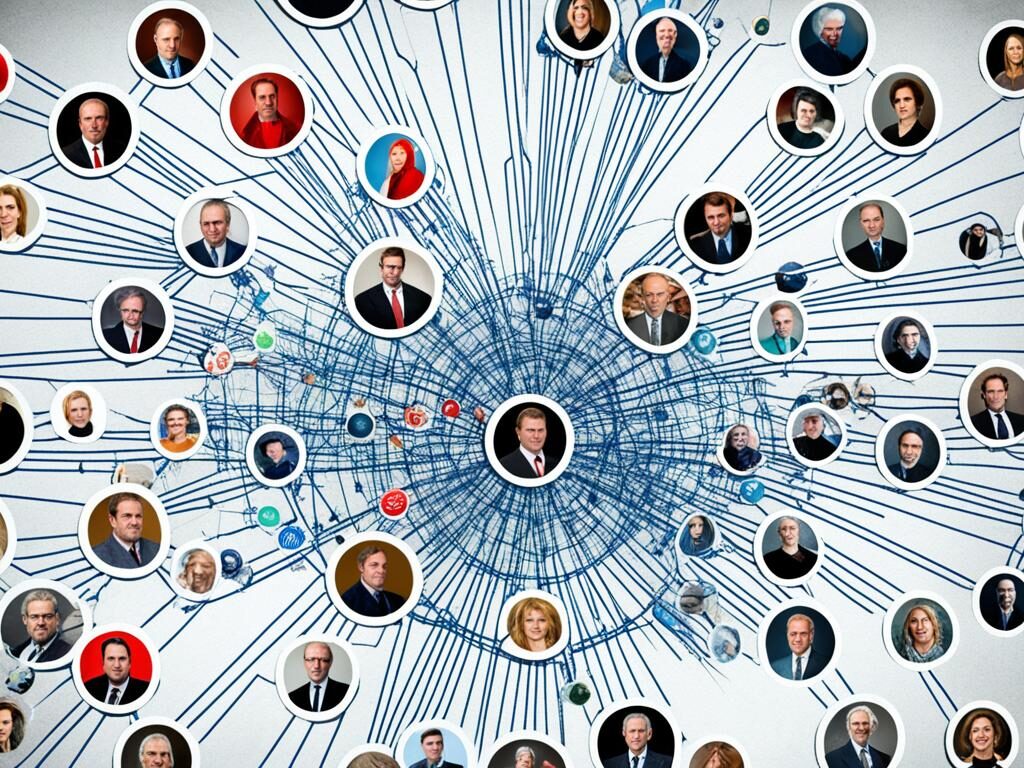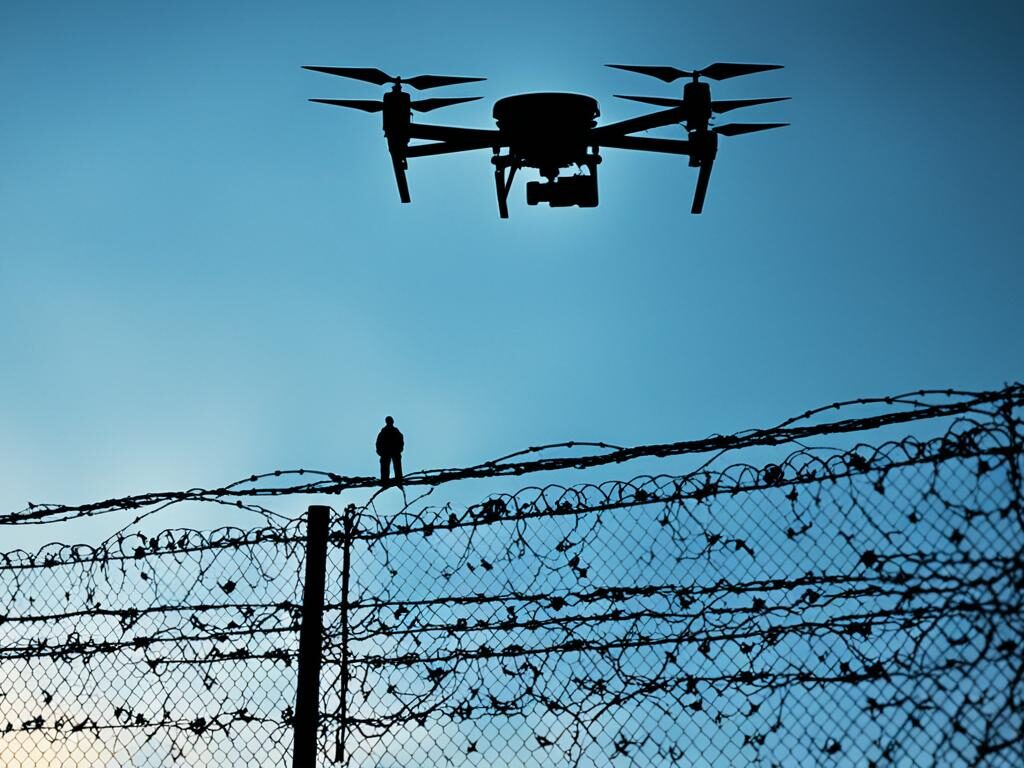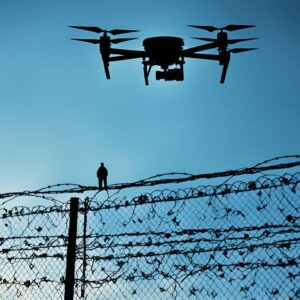Technological espionage is a critical issue that shapes the dynamics of global power and innovation. In this era of advanced technology and digital connectivity, nations are engaged in a silent war to gain an upper hand in the race for dominance. At the forefront of this battle is China, a nation that has been waging an all-out spy war against the West for decades.
China’s intelligence services operate in a fundamentally different way from those in Western democracies. With a “whole of society” approach and integration of intelligence and commerce, China aims to steal scientific and technical secrets from Western powers, particularly the United States, to advance its position as a superpower.
This article delves into the depths of this covert war, exploring the methods, targets, and global impact of technological espionage. It sheds light on the Chinese intelligence assault and its economic boom powered by intellectual property theft. Additionally, it examines China’s espionage networks within the United States, the response of the US government, and the future trends in technological espionage.
Stay tuned for an eye-opening journey into the dark world of technological espionage and its implications for global security and innovation.
The Chinese Intelligence Assault: Collect, Collect, Collect
China’s Ministry of State Security (MSS), its principal civilian intelligence service, declared war on the U.S. intelligence community in 2005. The MSS marshaled its best resources and personnel against U.S. intelligence, taking advantage of the U.S. government’s focus on counterterrorism. Chinese intelligence compromised the U.S. network, leading to the killing or imprisonment of CIA sources in China. Unlike Western intelligence services, China’s intelligence services are not held accountable by independent political bodies or the public, and they are integrated with Chinese commerce. China’s foreign intelligence offensive involves stealing scientific and technical secrets from the United States to challenge and overtake it on the world stage.
China’s Economic Boom Powered by Intellectual Property Theft
In the 21st century, China has experienced an impressive economic boom that has propelled it to the forefront of global economic power. However, behind this remarkable growth lies a dark secret: intellectual property theft. China’s rapid development has been fueled by the systematic theft of Western science and technology, allowing it to gain a competitive edge in various industries.
A prominent example of China’s intellectual property theft occurred in 2014 when Chinese operatives carried out a massive hack of the U.S. Office of Personnel Management (OPM). This cyberattack resulted in the acquisition of sensitive data on approximately 22 million Americans, including information obtained during security clearances. This stolen data provided the Chinese government with invaluable insights into the inner workings of the U.S. intelligence community.
Chinese intelligence agencies also specialize in targeting U.S. aviation trade secrets. Utilizing intricate schemes, they often pose as businessmen or establish intelligence front companies to gain access to valuable information. By stealing these trade secrets, China can bypass years of research and development, accelerating its technological advancements and bolstering its economic growth.
The Impact on the United States
The theft of intellectual property has had a devastating impact on the United States, both economically and strategically. The U.S. government estimates that China’s intellectual property theft costs the American economy over $600 billion annually, undermining the competitiveness of U.S. companies and stifling innovation. This financial loss not only hampers economic growth but also jeopardizes American jobs and the overall well-being of the nation.
Furthermore, China’s acquisition of sensitive information and trade secrets provides it with a significant advantage in various industries, allowing it to challenge and surpass the United States on the global stage. As China continues to exploit stolen intellectual property, the technological gap between the two nations narrows, posing a significant threat to U.S. dominance in critical sectors.

This image illustrates the impact of intellectual property theft on innovation and economic growth.
Protecting Intellectual Property and Ensuring Fair Competition
The theft of intellectual property not only affects the United States but also undermines the principles of fair competition and international trade. To address this issue, countries must collaborate and implement robust measures to protect intellectual property rights, detect and deter cyberattacks, and hold responsible individuals and organizations accountable for their actions.
Strict cybersecurity protocols, increased public awareness, and enhanced international cooperation are crucial for combating intellectual property theft. By working together, the global community can safeguard innovation, maintain fair competition, and ensure that the economic boom of nations is driven by genuine creativity and ingenuity rather than illicit activities.
China’s Espionage Networks Within the United States
China actively involves its citizens studying, researching, and working in the United States in its intelligence operations. Chinese students and researchers are often targeted to gather information on their activities within Chinese expatriate communities. Chinese intelligence also employs economic espionage activities, targeting Chinese state-owned companies, individual businessmen, research centers, non-governmental organizations, academics, and workers in the technology and information security sector. American intelligence agencies have warned of the existence of massive Chinese networks of electronic espionage and hacking programs.
Targeting Chinese Expatriate Communities
China’s espionage networks within the United States extend far beyond academic institutions and research facilities. Chinese students and researchers are a high-priority target for gathering information about their activities and connections within Chinese expatriate communities. By infiltrating these communities, Chinese intelligence seeks to gain insights into the activities and associations of Chinese citizens abroad, allowing them to gather valuable intelligence and exert influence over their own citizens.
Economic Espionage and Targeting State-Owned Companies
In addition to targeting individuals, Chinese intelligence also engages in economic espionage activities, specifically focusing on Chinese state-owned companies and individual businessmen. By gaining access to trade secrets, proprietary technology, and valuable business information, Chinese intelligence aims to bolster China’s economic competitiveness and advance its strategic goals. The targeted entities range from research centers and non-governmental organizations to workers in the technology and information security sector.
The Reality of Massive Espionage Networks
American intelligence agencies have repeatedly sounded the alarm about the existence of extensive Chinese espionage networks within the United States. These networks utilize sophisticated electronic espionage and hacking programs, enabling China to gather sensitive information across a wide range of sectors and industries. The scale and scope of these networks underscore the gravity of the ongoing espionage threat posed by China.

Chinese Espionage and the US Response
The United States has raised serious accusations against China, accusing it of engaging in espionage activities targeting American dissidents, human rights leaders, and activists. Chinese intelligence officers have faced indictments for conducting spying operations on American soil, taking advantage of their positions within Chinese expatriate communities.
The US Federal Bureau of Investigation (FBI) has been grappling with the rising number of China-related espionage cases, opening a new case every 10 hours on average. Currently, there are approximately 2,000 active cases related to Chinese espionage. These alarming statistics highlight the magnitude of the issue and the urgent need for countermeasures.
The severity of economic espionage activities carried out by Chinese intelligence has witnessed a significant increase. This has prompted calls from members of Congress to address the situation by imposing stricter regulations on visas granted to Chinese students and researchers, in an effort to curb potential risks.
The Challenges Faced by the US
The US faces numerous challenges in countering Chinese espionage, including:
- Infiltration within Chinese expatriate communities: Chinese intelligence operatives exploit their positions within these communities to gather sensitive information and conduct covert operations.
- Developing effective counterintelligence strategies: The US needs to enhance its counterintelligence capabilities to identify and neutralize Chinese spies and their networks.
- Protecting intellectual property: Chinese intelligence has been accused of stealing intellectual property from American companies, posing a significant threat to innovation and economic competitiveness.
Given the ongoing espionage cases and the severity of the threat, it is crucial for the United States to develop and implement robust measures to safeguard national security and protect American interests.
Recent Chinese Espionage Cases in the United States
| Date | Case | Details |
|---|---|---|
| 2020 | Xu Yanjun case | A Chinese intelligence officer arrested for attempting to recruit personnel from US aviation companies to gather sensitive information. |
| 2019 | Lu Jing case | Lu Jing, a Chinese national, convicted of conducting economic espionage and stealing trade secrets from her employer, a Chicago-based aviation company. |
| 2018 | Zhou Hongxu case | A Chinese student jailed for attempting to acquire US military technology and recruit US engineers as informants for the Chinese government. |
Chinese Espionage Methods and Targets
Chinese espionage methods encompass a variety of tactics aimed at gathering sensitive information for strategic advantage. These techniques include:
- Eavesdropping: Chinese intelligence agencies engage in extensive monitoring and interception of communications, both domestically and internationally, to gather intelligence on targeted individuals and organizations.
- Cyber Espionage: China is notorious for its advanced cyber capabilities, using state-sponsored hackers and sophisticated attack techniques to infiltrate foreign networks and acquire valuable data, trade secrets, and intellectual property.
- Electronic Hacking: Chinese hackers employ various methods to compromise computer systems, exploit vulnerabilities, and gain unauthorized access to confidential information, including malware, phishing attacks, and zero-day exploits.
Chinese intelligence agencies have specific targets in their espionage campaigns. They focus on individuals and groups that pose perceived threats to the Chinese Communist Party’s rule and national sovereignty. These targets include:
- Tibetan and Uighur Separatists: Chinese intelligence operations actively monitor and gather information on individuals and organizations advocating for independence and autonomy for Tibet and Xinjiang’s Uighur population.
- The Falun Gong Movement: China views the Falun Gong spiritual movement as a threat, leading to the establishment of intelligence networks to surveil, infiltrate, and suppress its activities.
- Taiwan Independence Activists: Individuals and groups advocating for Taiwanese independence are closely monitored and targeted by Chinese intelligence to gather information and destabilize the movement.
- Pro-Democracy Activists: Chinese intelligence agencies surveil individuals involved in the pro-democracy movement within China, Hong Kong, and abroad, aiming to suppress dissent and prevent challenges to the ruling Communist Party.
Chinese espionage operations serve two primary objectives: gaining a strategic advantage over the United States and neutralizing any threats to the Communist Party’s authority. Chinese intelligence has been accused of using its citizens living abroad as assets to monitor and evaluate other Chinese nationals, ensuring their compliance with party ideology and reporting any oppositional behavior to the authorities.

| Espionage Methods | Chinese Targets |
|---|---|
| Eavesdropping | Tibetan and Uighur Separatists |
| Cyber Espionage | The Falun Gong Movement |
| Electronic Hacking | Taiwan Independence Activists |
| Corporate Espionage | Pro-Democracy Activists |
Global Concerns and Countermeasures
The global community, particularly Western countries, has been increasingly alarmed by the rise of Chinese espionage. The United States, in particular, has taken decisive countermeasures to protect national security and intellectual property. One of the key steps taken is implementing stricter visa regulations for Chinese students, researchers, and scholars. By tightening the visa process, the United States aims to scrutinize individuals entering the country more thoroughly, thereby mitigating the risk of Chinese intelligence operations.
Intelligence agencies, such as the CIA, emphasize the importance of raising public awareness and fostering vigilance regarding Chinese espionage activities. By educating the general population about the tactics and methods employed by Chinese spies, individuals can better identify and report suspicious activities.
Moreover, cooperation and information sharing between Western intelligence agencies have significantly increased to effectively address the threats posed by Chinese espionage. By collaborating closely, agencies can exchange crucial intelligence, develop proactive strategies, and stay one step ahead of Chinese intelligence operations.
Overall, the international community must remain united in tackling the global concerns surrounding Chinese espionage. By implementing countermeasures, increasing public awareness, and fostering collaboration among intelligence agencies, nations can safeguard their interests and protect themselves against the pervasive and dangerous threat of Chinese espionage.
Examples of Countermeasures taken by the United States:
- Tightening visa regulations for Chinese students, researchers, and scholars
- Increasing public awareness and vigilance regarding Chinese espionage activities
- Enhancing cooperation and information sharing between Western intelligence agencies
| Countermeasures | Description |
|---|---|
| Tightening visa regulations for Chinese students, researchers, and scholars | The United States has implemented stricter visa rules to thoroughly vet individuals entering the country, reducing the risk of Chinese intelligence infiltration. |
| Increasing public awareness and vigilance | Through education and awareness campaigns, the United States aims to equip the public with knowledge about Chinese espionage tactics, enabling them to identify and report any suspicious activities. |
| Enhancing cooperation and information sharing between Western intelligence agencies | Intelligence agencies, such as the CIA, are collaborating closely with their Western counterparts to share crucial intelligence, develop proactive strategies, and effectively counter Chinese espionage threats. |
The Future of Technological Espionage
Mutual accusations and concerns between China and the United States regarding technological espionage are expected to intensify in the coming years. As the relationship between the two nations continues to deteriorate, the tensions surrounding espionage activities are further exacerbated.
Both China and the US are likely to invest heavily in intelligence gathering and cybersecurity to protect their national interests and maintain their positions of power. This will lead to a continuous evolution and complexity in their efforts to gain an advantage over each other in the field of technological espionage.
Emerging Trends
Looking ahead, several trends are expected to shape the future of technological espionage:
- Advancements in Cyberwarfare: As technology continues to advance, cyberwarfare capabilities will become more sophisticated, enabling both China and the US to launch increasingly sophisticated cyber attacks for intelligence gathering purposes.
- Artificial Intelligence and Machine Learning: The integration of artificial intelligence and machine learning in intelligence gathering processes will enhance the speed and accuracy of data analysis, enabling more targeted and effective espionage operations.
- Rise of Quantum Computing: The development of powerful quantum computers will pose new challenges and opportunities in the field of encryption and decryption, impacting both offensive and defensive technological espionage strategies.
These trends will shape the future landscape of technological espionage, enabling actors to exploit emerging technologies for their intelligence-gathering objectives.
The Impacts
The consequences of the future trends in technological espionage will be far-reaching:
- Increased Vulnerability: With advancements in cyberwarfare, both governments and private entities will face an increased risk of cyber attacks, compromising not only sensitive data but also national security.
- Economic Disruptions: Intellectual property theft and trade secret infringements will continue to impact the global economy, resulting in significant financial losses and hindering innovation and competitiveness.
- Geopolitical Shifts: The outcomes of technological espionage could reshape the global power balance, as nations gain or lose information advantage and leverage this advantage for diplomatic, military, or economic purposes.
It is essential for governments, the private sector, and international organizations to anticipate and respond to these future trends in order to maintain global security and protect against the threats posed by technological espionage.
The Global Impact of Technological Espionage
Technological espionage has a profound effect on the dynamics of global power and innovation. China’s relentless pursuit of espionage and intellectual property theft has not only fueled its own economic boom but also posed significant challenges to the United States on the world stage.
The theft of intellectual property and trade secrets has far-reaching consequences, impacting the competitiveness of Western companies and stifling innovation. The theft robs companies of their hard-earned research and development, undermining their ability to remain at the forefront of technological advancements.
To illustrate the global impact of technological espionage, consider the following:
The Economic Consequences
China’s illicit acquisition of intellectual property and trade secrets has allowed it to rapidly advance its technological capabilities, directly undermining Western businesses that rely on innovation as a key driver of growth. This unfair advantage gained through espionage not only hampers the competitive landscape but also raises concerns about the integrity and security of global trade.
The Innovation Gap
By stealing technological advancements from the West, China bypasses the years of investment and research required to develop groundbreaking discoveries. This creates an innovation gap, as stolen intellectual property allows China to quickly replicate and incorporate new technologies into its industries, leaving Western economies struggling to maintain their edge and competitiveness.
Furthermore, the fear of intellectual property theft can deter companies from fully investing in research and development, stifling innovation and hindering technological progress on a global scale.
The National Security Implications
Technological espionage not only affects businesses and economic interests but also poses significant risks to national security. The theft of military technology and classified information can enable hostile actors to gain a strategic advantage, compromise national defense systems, and undermine the safety and sovereignty of nations.
In light of these global concerns, it is crucial for the international community to work together to address the threats posed by technological espionage. Developing stronger countermeasures, fostering collaboration among intelligence agencies, and enhancing cybersecurity are essential steps in safeguarding global security and stability.
Only through collective efforts can we protect intellectual property, promote fair competition, and ensure a level playing field for innovation worldwide. By addressing the global impact of technological espionage, we can safeguard the integrity of key industries, foster innovation, and preserve the security and stability of nations.
| Impact | Description |
|---|---|
| Economic Consequences | Theft of intellectual property and trade secrets undermines Western businesses and raises concerns about global trade integrity. |
| Innovation Gap | Stolen intellectual property allows China to bypass years of research and development, creating an advantage and leaving Western economies struggling to maintain competitiveness. |
| National Security Implications | The theft of military technology and classified information poses risks to national defense systems and sovereignty. |
Conclusion
Technological espionage poses an ongoing and pervasive threat to global security and the delicate balance of power among nations. The rising sophistication and far-reaching capabilities of Chinese intelligence operations underscore the pressing need for heightened awareness, international cooperation, and robust countermeasures. It is imperative for the global community to unite in order to protect intellectual property, foster innovation, and safeguard national security against the perils of technological espionage.
By forging collaborative efforts, nations can effectively mitigate the risks posed by technological espionage and ensure a safer landscape for technological advancements. Increased awareness and cooperation among global stakeholders will not only fortify global security but also preserve the integrity of intellectual property rights, enhancing innovation and economic development in the process.
The threats of technological espionage extend beyond individual countries and impact the entire global community. As such, it is paramount for nations to work together to establish stronger defenses, share intelligence, and develop comprehensive countermeasures. By doing so, we can collectively combat the dangers posed by technological espionage, maintain global security, and protect the interests of nations and their citizens.
Source Links
- https://www.jfklibrary.org/archives/other-resources/john-f-kennedy-speeches/american-newspaper-publishers-association-19610427
- https://foreignpolicy.com/2023/03/28/china-has-been-waging-a-decades-long-all-out-spy-war/
- https://moderndiplomacy.eu/2022/07/18/the-espionage-war-between-china-and-the-usa/






























